#lot of Liberia ones...
Text
Compilation of flag confusions I’ve seen online
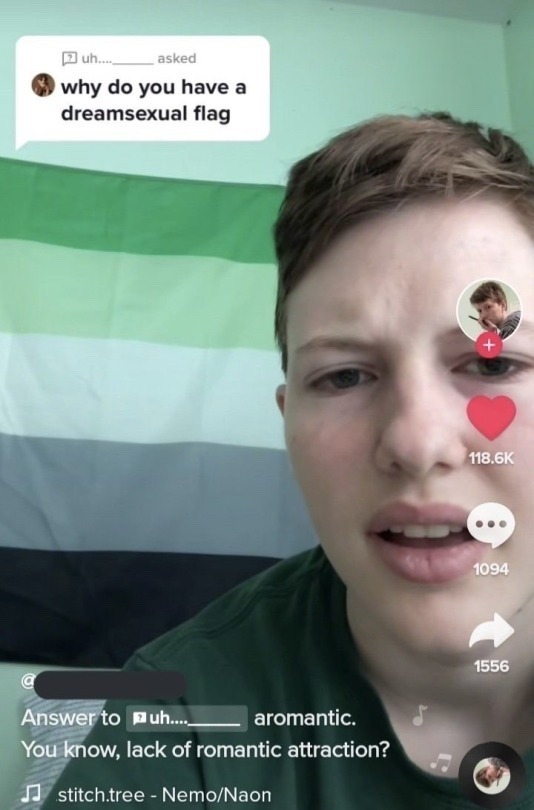
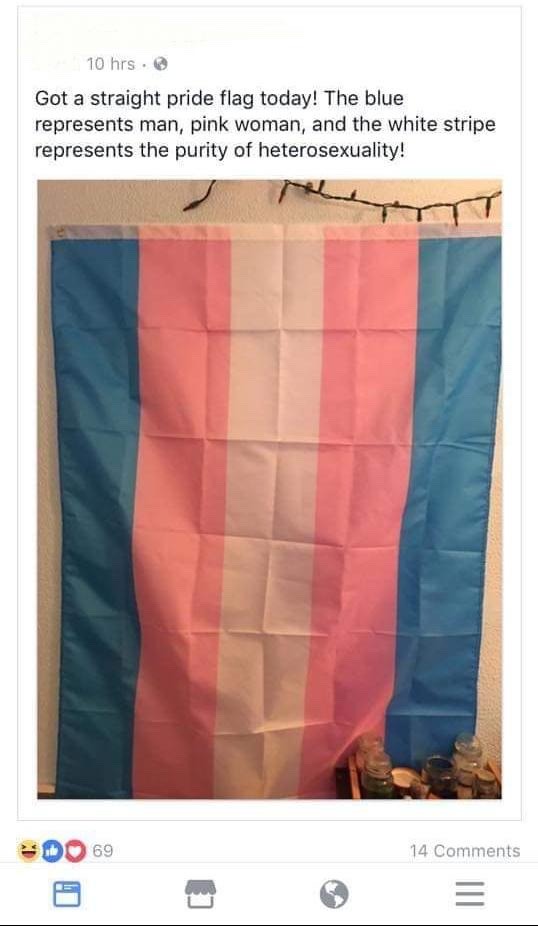





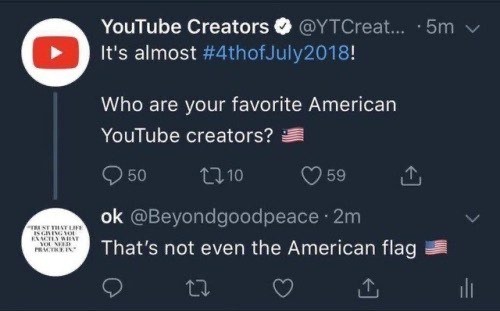
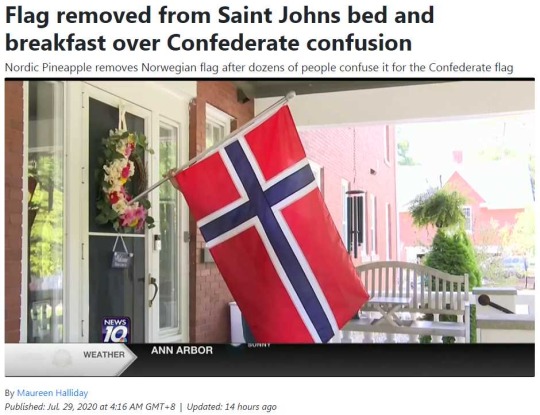


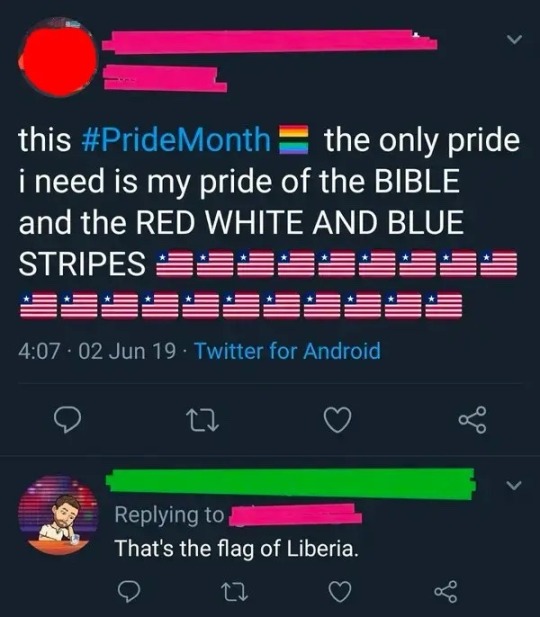

#the aromantic one is still my favorite#idk how well the sephora bag one fits but I’m adding it anyways#lot of Liberia ones...#flag memes#meme compilation#save for later#for me at least
22 notes
·
View notes
Text
Non-offensive Historical terms for Black people in historical fiction
@pleasespellchimerical asked:
So writing historical fiction, with a white POV character. I'm not sure how to address race in the narration. I do have a Black main character, and I feel like it'd feel out of place to have the narrator refer to her as 'Black', that being a more modern term. Not sure how to do this without dipping into common historical terms that are considered racist today. Thoughts on how to handle this delicately, not pull readers out of the narrative? (fwiw, the POV character has a lot of respect for the Black character. The narration should show this)
There are non-offensive terms you can use, even in historical fiction. We can absolutely refer to Black people without slurs, and if slurs is all one can come up with, it’s time to go back to the drawing board. I cannot say which terms are best for your piece without knowing the time period, but hopefully the list below helps.
Historical terms to use for Black people (non-offensive)
African American documented as early as 1782 (documented in an ad in the Pennsylvania Journal). Note the identity isn’t accurate for non-American Black people.
African could refer to African people or “from 1722 as ‘of or pertaining to black Americans.’”
The place of origin could also be used. For example, “a Nigerian woman”
Africo-American documented as early as 1788.
People of Color documented as early as 1796 (with specific contexts, usually mixed people)
Afro American documented as early as 1817, 1831 (depending on source)
Black American documented as early as 1831
Black was used in Old English to refer to dark-skinned people. Black was not capitalized until recent years, so “She was a young black woman.” would make sense to say, though “She was a young Black woman.” is the better standard today, although not universally adopted. I personally prefer it capitalized.
Moor was used as early as the late 1400s for North African people, but had a somewhat flexible use where anyone visibly Black / Of African descent or the Afro Diaspora might be referred to or assumed as a Moor. Note, it has other meanings too, such as referring to Muslim people, but that doesn’t mean the person using it is going by the dictionary definition. Not really the way to go today, but okay in a historical setting (in my opinion).
Biracial (1860s), mixed race (1872), multiracial (1903) and multicultural (1940s) are also terms to refer to people of two or more races.
Occupation + description. Throughout history, many people have been referred to as their occupation. For example, the Carpenter, The Baker, the Blacksmith. Here’s an example of how you might go about using occupation and traits to identify a Black character in history. Here’s an example I came up with on the fly.
“You should go by Jerry’s. He’s the best blacksmith this town’s ever seen. Ya know, the real tall, dark-skinned, curly haired fellow. Family’s come here from Liberia.”
Offensive and less-sensitive terms for Black people
Blacks was used in plural more, but this is generally offensive today (Even writing it gives me **Thee ick*)
Colored was mostly used post-civil war until the mid 20th century, when it became unacceptable. This is not to be conflated with the South African Coloured ethnic group.
Negro/Negroes were also used as early as the 1550s. Capitalization became common in the early 20th century. I'm sure you know it is offensive today, though, admittedly, was not generally seen as such until around the 1960s, when Black replaced it. It does have its contexts, such as the trope “The Magical Negro” but going around using the term or calling someone that today is a lot different.
Mulatto referred to mixed people, generally Black and white, and is offensive today.
The N-word, in all its forms, is explicitly a slur, and there is absolutely no need to use it, especially in a casual manner, in your story. We’ve written about handling the N-word and alluding to it “if need be” but there are other ways to show racism and tension without dropping the word willy-nilly.
Deciding what to use, a modern perspective
I’m in favor of authors relying on the less offensive, more acceptable terms. Particularly, authors outside of the race. Seldom use the offensive terms except from actual direct quotes.
You do not have to use those offensive terms or could at least avoid using them in excess. I know quite famous stories do, but that doesn’t mean we have to so eagerly go that route today. Honestly, from teachers to school, and fellow non-Black students, it’s the modern day glee that people seem to get when they “get a chance to say it” that makes it worse and also makes me not want to give people the chance.
It goes back to historical accuracy only counting the most for an “authentic experience” when it means being able to use offensive terms or exclude BIPOC from stories. We’ve got to ask ourselves why we want to plaster certain words everywhere for the sake of accuracy when there are other just as accurate, acceptable words to use that hurt less people.
Disclaimer: Opinions may vary on these matters. But just because someone from the group cosigns something by stating they’re not offended by it, doesn’t mean a whole lot of others are okay with it and their perspectives are now invalid! Also, of course, how one handles the use of these words as a Black person has a different connotation and freedom on how they use them.
~Mod Colette
The colonial context
Since no country was mentioned, I’m going to add a bit about the vocabulary surrounding Black people during slavery, especially in the Caribbean. Although, Colette adds, if your Black characters are slaves, this begs the question why we always gotta be slaves.
At the time, there were words used to describe people based on the percentage of Black blood they had. Those are words you may find during your searches but I advise you not to use them. As you will realize if you dive a bit into this system, it looks like a classifying table. At the time, people were trying to lighten their descent and those words were used for some as a sort of rank. Louisiana being French for a time, those expressions were also seen there until the end of the 19th century.
The fractions I use were the number of Black ancestors someone had to have to be called accordingly.
Short-list here :
½ : mûlatre or mulatto
¼ or ⅛ : quarteron or métis (depending on the island, I’m thinking about Saint-Domingue, Martinique and Guadeloupe)
1/16 : mamelouk
¾ : griffe or capre
⅞ : sacatra
In Saint-Domingue, it could go down to 1/64, where people were considered sang-mêlé (mixed blood for literal translation, but “HP and the Half-Blood Prince” is translated “HP et le Prince de Sang-Mêlé” in French, so I guess this is another translation possibility).
-Lydie
Use the 3rd person narrative to your advantage
If you are intent on illustrating historical changes in terminology consider something as simple as showing the contrast between using “black” for first person character narration, but “Black” for 3rd person narrator omniscient.
-Marika
Add a disclaimer
I liked how this was addressed in the new American Girl books
it’s set in Harlem in the 1920’s and there’s a paragraph at the beginning that says “this book uses the common language of the time period and it’s not appropriate to use now”
-SK
More reading:
NYT: Use of ‘African-American’ Dates to Nation’s Early Days
The Etymology dictionary - great resource for historical fiction
Wikipedia: Person of Color
2K notes
·
View notes
Text
The current situation is Israel is very confusing to a lot of people, and the word "colonizers" is thrown a lot in conversations, social media and protests. If you are not sure whether you can or should call Israel a colonial state, here is a handy guide divided by origin-country of the speaker:
The UK: OUR INDEPENDENCE IS LITERALLY FROM YOU!
Italy: THIS IS LITERALLY ALL YOUR FUCKING FAULT!
Egypt, Syria, Iraq, Iran, Greece, North Macedonia, Turkey, Mongolia: Every single one of you has conquered us at least once, so keep your mouth shut or start talking about reparations. (Yes, even the Mongols. Did you know that? I only found out a couple of years ago. Isn't that cool? I mean bad. Very bad...)
Every single country in the American continent + the surrounding islands, Australia, New Zealand, South Africa, China, India, Russia, Georgia, Azerbaijan, Armenia: LOL. Don't even fucking look at us.
Portugal, Spain, France, Belgium, The Netherlands, Germany, Denmark, Austria, Sweden, Norway, Saudi Arabia, Tunisia, Morocco, Algeria, Libya, Japan: Let me check a history book for a sec. Yeah, no.
Every other nation in the world: I don't know enough about your history to put you in another category, but no.
Liberia: Literally the only nation in the entire world that knows even half of what we’re going through. They’re not colonizers, and neither are we. Stop trying to force your Western terminology on our history.
North Korea: I think you need to deal with some other issues right now darling...
Hope this helps.
#you know nothing about jews or our history#stop pretending like you do#a native people coming back from exile to their ancestral homeland are not fucking colonizers#did we make every single mistake conceivable while doing it? hell yes#have we committed and are still committing crimes against the palestinians? absolutely#does that mean we don't belong here? fuck no#either open a fucking history book or shut your fucking mouth#jewish things#jumblr#israel
64 notes
·
View notes
Note
I didn't know black people any had writing systems in Africa before colonialism so that's really cool
Yes, there were several. Notably, Ge'ez from Ethiopia like my other reblog:

Bassa Vah, developed by the Bassa people in what is now the West African country of Liberia (and which narrowly avoided extinction at the end of the nineteenth/early twentieth century):

The Nsibidi writing system in Nigeria:
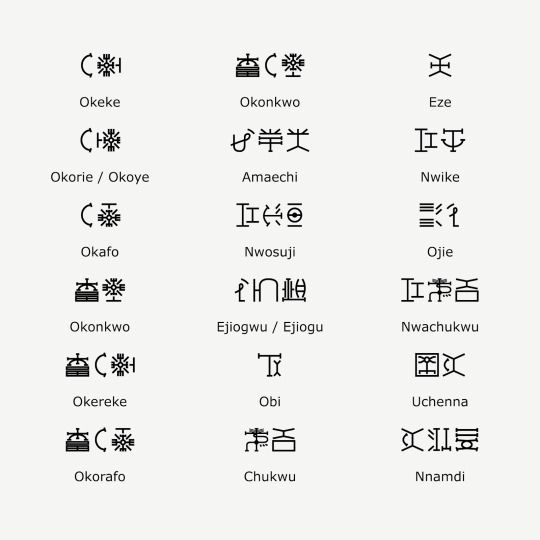
And the Meroitic script in Kush:
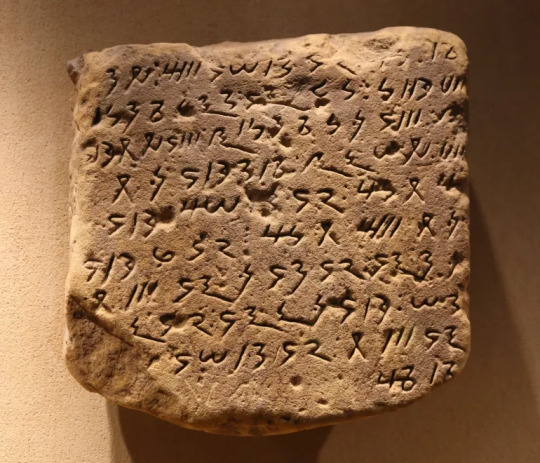
And these are just the ones I personally know of. I also feel it necessary to add that a lot of writing was also done in Arabic or with separate writing systems derived from Arabic due to centuries-long contact with the Islamic world and the spread of Islam in Africa.
66 notes
·
View notes
Text
Odd jobs are few and far between in Nearobo. Peter knows because every day he walks the streets of his village in south-east Liberia looking for one. In a good month, he might make $20 (£16.70). That’s hardly enough to feed himself, let alone his children.
But today things are looking up. As part of an innovative new donation scheme, Peter receives $40 (£33.40) per month for a minimum of three years. No paperwork. No requests for receipts. No catch of any kind, in fact. Just hard cash transferred straight to his mobile phone.
The 59-year-old casual labourer plans to use the money to buy materials for a new home for himself and his family, he says. “Although it is going to take long, I will continue until my house is completed.”
The scheme is part of a new-look approach to development assistance that, if taken to scale, could potentially turn the £156bn international aid industry on its head.
At least, so says Rory Stewart, the former UK foreign secretary turned podcaster-in-chief (he co-hosts ‘The Rest is Politics’ with Alastair Campbell, a surprise hit which has topped the Apple podcast charts virtually every week since it launched a year ago). From his new base in Amman, Jordan, Stewart heads up GiveDirectly – the world’s fastest growing nonproft – who are behind the initiative.
“It’s a rather radical, simple idea to help people out of extreme poverty. We deliver the cash directly … there’s no middleman and no government getting in the way.”
It feels like an odd statement from someone who has spent much of his life in government service: first as a junior diplomat for eight years (during which he penned a bestselling book about dodging Taliban bullets and hungry wolves whilst walking across Afghanistan), followed by almost a decade as a politician at Westminster.
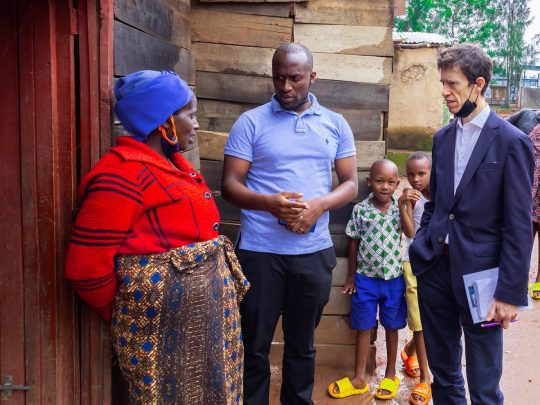
Pictured: Rory Stewart and GiveDirectly’s Ivan Ntwali talk with a refugee household in Rwanda. Image: GiveDirectly
His enthusiasm is even more surprising given his initial caution. During his various ministerial stints at the UK’s department for international development (including three months as secretary of state), he was an out-and-out “cash sceptic.”
Giving away money with no strings attached was, he felt at the time, an impossible sell to tax-paying voters. What’s stopping recipients spending it down the pub? Or investing in a hair-brained business venture?
Quite a lot it turns out. No one knows the value of money more than those who don’t have any, he argues. Give an impoverished mother-of-four $40 (£33.40) cash and, 99 times out of 100, she’ll spend it on something useful: repairs to the house, say, or school fees for her kids...
By virtue of GiveDirectly’s model, participants can spend their money on whatever they choose, but the charity’s research indicates that most goes towards food, medical and education expenses, durables, home improvement and social events.
On the flipside, Stewart also has numerous examples of well-funded aid projects that deliver next to nothing. A decade ago, the then United Nations general secretary Ban Ki-moon estimated that 30 per cent of aid money disappears in corruption. There is little to suggest much has changed.
The aid industry doesn’t need corrupt officials to see its funds evaporate, however; it has its own voluminous bureaucracy. Stewart recalls once visiting a $40,000 (£33,560) water and sanitation project in a school in an unnamed African country. The ‘deliverables’ were two brick latrines and five red buckets for storing water...
The beauty of direct giving, he stresses, is not just that it annuls opportunities for thievery and red tape; it also frees the world’s poorest individuals from the well-meaning but, very often, misplaced guidance of donors. An aid expert in Brussels or Washington DC may well have a PhD in development economics, but who is best to judge what a single mother in a Kinshasa slum needs most and how to obtain it most cheaply: the expert with her degree, or the mother with her hungry children?
Empowering recipients to decide for themselves helps end the kind of “mad world” where aid agencies pay to ship wheat from Idaho, US, to Antananarivo, Madagascar, only for local people to sell it in order to buy what they really want, Stewart reasons.
“So often, these communities are having to turn the goods we send them into cash anyway, but just in a very inefficient and wasteful fashion … instead [with direct cash transfers] they are given the choice and freedom in how to spend it.”

Pictured: Villagers in Kilif, Kenya, at a public meeting about the GiveDirectly programme. Image: GiveDirectly
Is the system perfect? No, clearly not. Stewart concedes that opportunities for fraud and coercion exist. To minimise these risks, GiveDirectly employs field officers to meet face-to-face with recipients, as well as a team of telephone handlers and internal auditors to follow up on reports of irregularity.
By his reckoning, however, the biggest impediment to direct giving really taking off is donor reticence. At present, only 2 per cent of official aid is given direct in cash. Stewart thinks it should be closer to 60 or 70 per cent...
‘My children will not have to beg anymore’
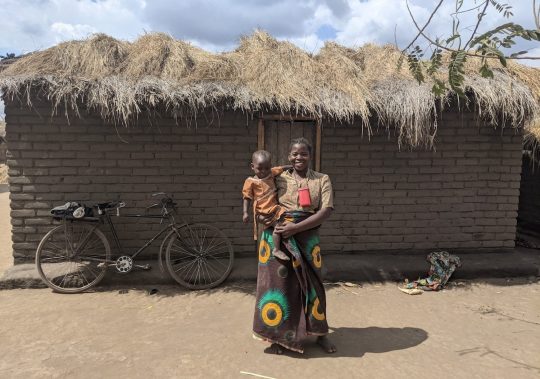
Happiness Kadzmila from Malawi enrolled on GiveDirectly’s Basic Income project last summer. She will now receive $50 (£41) a month for a year ($600/£496 in total).
What are the biggest hardships you’ve faced in life?
I am a divorced mother of four children. I got divorced in 2020 while I was eight months pregnant with my last-born child. Since then, I have been depending on working on other people’s farms. I get paid $0.49 (£0.43), or a plate of maize flour per day. As a result, it has been a challenge to feed my children, buy clothes for them, and to pay their school fees My firstborn child is in year 4, the school charges $0.69 (£0.61) per day for her. My second is in year 3, I pay $0.49 (£0.43) for him. There were days when I would have no food in my home, and my children would go to my neighbours’ homes to beg for food. This made me feel sorry for my children as a mother.
What does receiving this money mean for you?
I was so happy the day I received cash amounting to $51.75 (£43.56) from GiveDirectly. I used the money to buy maize at $9.88 (£8.32). My children will not have to go to our neighbours to beg for food anymore. I also bought a sheep at $34.58 (£29.10). I will be selling sheep in future when they multiply. I also bought lotion and soap at $1.88 (£1.58).
How will you spend your future payments?
I plan to renovate my house. I have always admired those who sleep in houses made of a roof with iron sheets because they do not have to think of fetching grass every year for a new roof. I will also start a business selling doughnuts to sustain my income after I receive my last transfer. I did not know that an organisation like GiveDirectly would come to help me this way All I can say to those who are giving us this money is ‘thank you’."
-via Positive News, 3/3/23
More and More People to Help
In addition to their universal basic income programs, GiveDirectly also has dedicated programs where you can donate to emergency disaster relief, people living under the protracted civil war and human rights disaster in Yemen, refugees, and survivors of the Syria-Turkey earthquake.
They have also commissioned a number of large-scale, third-party studies on the effectiveness of their numerous universal basic income models. Find these and other projects here.
#charity#donations#foreign aid#extreme poverty#poverty#economic inequality#africa#yemen#syria#turkey#malawi#kenya#rwanda#refugees#refugee crisis#givedirectly#universal basic income#good news#hope
197 notes
·
View notes
Text
BLACK ERASURE IN ARGENTINA
Argentina is Blacker than it likes to admit. “Mexicans descend from the Aztecs, Peruvians from the Incas, but Argentinians descend from ships from Europe,” so goes an old saying that encapsulates Argentina’s perception of itself as a nation of White Europeans that never had Blacks. Afro-Argentines formed almost half of the population of Argentina in 1778, but an evidently systematically implemented anti-Blackness policy reduced them to 30% of the population by the time the country gained independence from Spain in 1816.
Several decades of racial politics and alleged extermination campaigns followed where they were slowly yet steadily wiped out and their rich Black culture erased from the nation’s collective consciousness. Today, statistics show Afro-Argentines form a paltry 0.4% of Argentina’s total population, making it the Whitest country not just in Latin America but the Whitest country outside of Europe.
Evidently, there were no racially-oriented laws in Argentina, such as South Africa’s apartheid or the Jim Crow laws in the United States, but the country created a lot of obstacles that prevented Black people from accessing lands, the labour market and education. Over the centuries, Black and indigenous people chose to strategically increasingly mix with and pass off as White to escape marginalisation. Some of the country’s biggest stars can trace their lineage back to Black slaves. However, compared to other South American teams, the all-White, always-White roster of the soccer team must have piqued your curiosity.
This Whitening process was attempted throughout much of the Americas, in places such as Brazil, Uruguay as well as the United States, when the American Colonization Society set up Liberia as a home for freed slaves. What makes Argentina’s story unique in this context, however, is that it successfully pushed to build its image as a White country. Ex-president Domingo Faustino Sarmiento once said towards the end of the 19th century that it would be impossible to see Blacks in Argentina unless one travelled to Brazil. African Stream’s Brenda Mwai lays out the case.
15 notes
·
View notes
Note
Chris is American and he's patriotic meaning he loves his country,his hometown A LOT and he always mentions that (ofc beside his other origins). Truly a bad move not knowing the 🇺🇸 flag. She's embarassing him once again like she did when she had been disrespectful to the journalists at her movie premiere while Chris is always so respectful and polite towards them.
(just by typing "America" you get the flag in the emoji section so it mens she typed Liberia instead???)
Exactly!!!
Proving once again, and adding more to the fact that they chose the wrong girl for Chris 😌
And also proving, that she's NOTHING like Chris, and she never will.
Alba be like:

I can just see that, and then her scrambling to correct her mistake and pray to God that no one saw it... But as usual we did 😉
#An🫶n asks#booky reacts#booky answers#chris evans#chris evans fandom#alba baptista#is it so hard to get the right flag?#🇺🇲 mmmm... nope#😆
18 notes
·
View notes
Text
Archive Masterpost
Since tumblr refuses to fix its search function and/or make its tagging system reliable, to keep things tidy around here I am going to start a masterlist of posts that I think are helpful, funny, or that I am likely to want to reference again for some reason.
(If I've spent more than a couple minutes searching for a post ever, it's going on this list so I don't have to waste my time again)
This is primarily for my own reference (so I will not be taking requests or unsolicited advice) but feel free to use it if you're looking for something of mine.
Religion/Theology (typically tagged with "every hour is theology hour around here apparently")
Extremely long post explaining differences between Xtianity and Judaism
Trinity post
This extremely excellent post by @/a-queer-seminarian about why the Tables Flipping Incident isn't what a lot of lefty Xtians like to say it was
Jumblr takes on the Tables Flipping Incident
A good test of the value of any given religious belief
Progressive Xtians need to step up, Now
Religion doesn't change my morals; it enhances them
Why are so many Xtians so insecure about their religion in how they relate to Jews?
Shituf (wrt Xtianity)
Culturally Xtian atheist discourse #1
Culturally Xtian atheist discourse #2
Culturally Xtian atheist discourse #3
Why I say 'Xtian'
Questions for converts of any type
Spicy theology question
Questions I regret asking about biblical literalism
Holy Envy quote: Rabia of Basra
Things I don't understand about the Xtian Sabbath
Hey what happens if you reject your baptism according to inclusive Xtians?
Judaism: Religion & Conversion
Do you ever feel crazy for believing in God?
Xtians should be Xtians by Choice:
What to expect at your first Shabbat (@/bneiruth)
First-timer tips for shul: [1], [2]
What you might be asked your first time talking to a rabbi about conversion (@/bneiruth)
Conversion resources (by @/keshetchai)
Do NOT convert to Judaism if your intent is to syncretize it with anything else, and especially don't convert for Lillith of all things.
Trust me, no you didn't embarrass yourself too much to go back to shul
No, really
Having a lot of thoughts about what genuine, compassionate kiruv might look like to interfaith couples
Judaism: Jewish culture & politics
On the diversity of what people mean by "Zionism" and "Anti-Zionism" by @/3tznius5this
On Jewish music vs. Xtian music (pt. 1, pt. 2)
Times of Israel article re: Israel's court reform
Israel is more similar to Liberia
Chelm stories?
Judaism: personal experiences
Eretz Yisrael post
Conversion journey
The music of our prayers
An Ode to the Holy Dark
Hashem, the soul you have placed in me is pure
Singing Hallel for Av
Messianic mishegas:
Why messianics aren't valid (long post by @/sorekbekarmi)
Why messianics are antisemitic (also by @/sorekbekarmi)
Interview by @/sorekbekarmi about his experiences being raised messianic
Conversion requires a lot of unlearning
Yoshke is probably a mamzer
Messianics still aren't valid, pt.2
Antisemitism: (more generally)
@/schraubd article about Jews being caught in the middle between Right and Left talking over Jews on antisemitism
@/schraubd post about a possible art simulation of Jewish experience
Dara Horn post
"But... but... Jews are disproportionately wealthy!"
Post about Jewish regeneration through large families; discussion on names
It's not the 1940s anymore, but in the 1940s it wasn't the 1890s anymore...
If I find this massive antisemitism write-up by (I believe) @/penrosesun I will lose it in a good way because it was so good [Edit: I finally saw it on my dash again!!]
Compilation of important dog whistles to know & avoid (by @/dzamie)
Antisemitism inherent to Xtianity?
Khazer theory debunking
No means no applies to proselytizing
Missionizing is awful and Jews should not have to become experts in Xtianity to fend it off
"Diaspora" doesn't even really cover it
Tentatively adding "attributes every failure of institutions and systems to intentional malice rather than ignorance or incompetence" to my List Of Conspiracy Theory Red Flags
Desecrating a sefer Torah is NOT the same as desecrating a printed bible
Jumblr: (mostly memes and other more lighthearted or inspirational Jewish posts)
Pesach tinfoil post
Apparently "fucking" is transliterated exactly into Hebrew
Subarot
Why the Jews are Better Off Without Xmas Trees
You wouldn't drive in your house
"Dual loyalty"
Goyische chol hamoed
The prettiest, most aesthetic sukkah I've seen
Mezuzah friend
A cruel God
Who's ready for Yom Kippur?
Goats have too many sins
First photo released from Mars
Rashi's big frog
What if we advertised Torah study like Bible study?
Don't walk in front of me I may not follow....
"Ruth was un-Jewish by birth. Moses was un-Jewish by upbringing..."
Gender garbage: (personal, often heavy, posts about my own experiences)
Convergent gender
"Indentifying as" language
Labels are for recycling bins
We pick one
Untitled
I don't have preferred pronouns really
Transandrophobia discussions
General trans- and queer-posting:
That one reblog about The Birdcage
Ways to improve discourse around gender wrt to understanding that all genders have the same needs regardless of what patriarchy has told us
Feminism & Reproductive Rights:
Uggghhh this post has too many notes
Conservatives are coming for no-fault divorce
If someone in tech designs this, it's not my fault
Memes and other lighthearted posts:
Why does everyone seem to reblog this one kinda throwaway comment directly from my blog?
Spouse and I are very silly about words sometimes
Boulevard of Broken Dreams
Hey if the diaper fits
Miscellaneous:
Be careful what you say, because I might remember it forever
The Sneeze (germ video)
Tech halp:
How to get rid of upload notifications
How to do the small text
Yes, you can actually have a comma in the tags
General/Housekeeping:
Original introduction pinned post (retired)
31 notes
·
View notes
Note
Does the list of countries that voted against the UN ceasefire resolution surprise anyone? Austria, Czech Republic, Guatemala, Isnotrael, Liberia, Micronesia, Nauru, Papua New Guinea, Paraguay, United States of Isnotrael. 23 cowards, including Ukraine and the UK, abstained.
The IOF has supplied and sold arms and given military aid to many countries over the past several decades. They are the 10th world's largest weapons exporter and the world's largest military drone exporter. It's also hard to track where they sell often because it's done in secrecy, but I think it's important to note -as many have, why the IOF is backed so intensely by the US -a major world military, and also by their 'allies.' There's a reason why Biden said if Isnotreal did not exist they would have to invent one. So I am not surprised why countries are voting against a ceasefire and are abstaining.
This by far is not all-encompassing (as there are more complexities), but I found this recent article on Al Jazeera (November 2023) important to reference, because they cover a lot of Isnotreal's militarization and being a huge participant in arms selling globally (and have contributed to other mass genocides as well (such as the Rwandan genocide) -as I spoke about in another post I made a while ago):
Dirty secret of Israel’s weapons exports: They’re tested on Palestinians
Here are some excerpts:
In 2018, former Philippines President Rodrigo Duterte said he would ask his military to purchase weapons exclusively from Israel because, unlike the United States or Europe, Israel did not impose restrictions.
New government regulations introduced last year will allow Israel to sell more weapons to a greater range of countries without licences – and so, with less oversight. It pays: Israeli weapon export figures have doubled over the past decade, totalling $12.5bn last year.
Ashraf al-Qudra, spokesperson for the Ministry of Health in Gaza, last week said in a press statement that medical teams in the enclave had “observed severe burns on the bodies of Palestinians who were killed and wounded by Israel’s bombs – whether caused by an unknown weapon or not – is something they have not seen in previous conflicts”.
Dr Ahmed el-Mokhallalati from the burn and plastic surgery division at al-Shifa Hospital, in an interview with the Toronto Star, described the wounds as “very deep – third and fourth-degree burns, and the skin tissue is impregnated with black particles and most of the skin thickness and all the layers underneath are burned down to the bone”.
The Israeli military has not commented so far on the statement made by Gaza’s Ministry. But the mystery incendiary bombs, the Iron Sting’s debut and the reported use of the new Spark drone in the current war suggest that Israel is once again testing new weapons in conflict.
“Israel’s weapons will continue to remain attractive to international buyers based on performance in the occupation,” Loewenstein said. “But Israel is not just selling weapons; they’re selling the ideology to other countries – of getting away with it.”
The IOF is creating and selling weapons of mass destruction and torture, and world leaders and militaries are watching and remaining complicit for a depraved reason. It's about money and their despicable desires of militarization, imperialism, and control. Despite many people around the world demanding a ceasefire an end to the occupation because many of those in positions of political power do not care about Palestinians, and it is utterly disgusting.
#feminist#feminism#social justice#freepalastine🇵🇸#palestine#free palestine#free gaza#gaza#gaza strikes#gazaunderfire#gaza strip#gazaunderattack#western imperialism#american imperialism#end the occupation#end the genocide#settler violence#settler colonialism#colonial violence#violence tw
15 notes
·
View notes
Note
You write a lot of characters from very diverse backgrounds (the Pax kids, Calex, Euna and Joey, etc) but you still manage to include details from their cultures that really show their connection to it. What kind of research do you do to be able to represent them well?
THANK YOU FOR YOUR ASK ANON!
*cries with relief that you're asking this instead of asking me why I'm so bad at it*
I am terrified of misrepresenting cultures. Someone I informally use as a sensitivity reader has told me that I overthink this. I screw up. A lot. Cultures can alter drastically depending on the geography and time frame. Sometimes I can't find anything on certain ethnic groups and other times I'm scared of misappropriating something. The last thing I want to do is hurt someone with how I portray something. But, I really want to have a diverse group that can connect with a lot of people, and would rather me told when I make mistakes so i can correct them, then not try.
Short answer: asking millions of questions and doing dumb amounts of research that STILL won't be enough.
Long-winded answer is below.
Where I... cheat? (Can skip to see where I don't)
Euna, Joey
I used to date a woman who is Korean, have two friends who went to teach in Korea, and live beside one of the biggest Korean immigration points in my country. Many a shopkeep has made fun of how bad my accent is when I try a little, "감사합니다," as I offer my payment with my right hand, left hand touching my elbow.
Korean culture is the only culture, so far, where I had someone speak out against how I represented a facet. I debated on altering the scene, and spoke with three cultural informants about this who said it was fine. However, it is something I am altering in the remake of the series that will ONE DAY happen.
Hiro, Yoshida
I have a friend who taught in Japan for a long time and speaks fluent Japanese. He's been an invaluable aid for both of them!
Flynn
I took Mandarin and college and had a VERY patient professor with my millions of questions. Also, I had a Cantonese friend who could give me some information about how it was for his family (different region though!)
Merry, Mercedes, Zaneera (and a little bit of Calex and Lapis)
(You don't know Zaneera yet.) This is several fold. I used to love studying religions when I was younger, so that has helped. I used to tutor and I owe a great debt to the Indian family that took me in and would have proper chai and homemade meals with me. They were not from the same district as Merry. I intentionally picked an underrepresented region for Merry, since most Indians portrayed are from Northern districts. However, I feel like I haven't been able to do proper research there and have been considering picking different districts for her parents, for fear of generalizing and misrepresenting.
My sister-in-law happens to be Pakistani Muslim and most of my brothers friends are from Pakistan or India (or... randomly proud country rednecks. His parties are, um, disjointed at times.) I absolutely adore her Amma and she's very patient answering my sheepish questions about her religion and culture. My sister-in-law also used to do a lot of work in West Africa and in Egypt.
One of my friends went to Granada, Spain, and provided information on Mercedes' hometown.
Where I flail and pray I don't screw up: The Real Research
Calex
I hit the books and newspapers and blogs a lot for Calex. He's one of the hardest ones to balance out all the facets that are nothing like my life experience. And. I got him wrong version one. Very. very. very. wrong. Embarrassingly. No one called me out, but I'll call myself out right here:
The original ethnic group he's part of was the Yoruba people. THAT ETHNIC GROUP IS MOSTLY IN NIGERIA, BENIN, AND TOGO. NOT LIBERIA. THERE ARE TWO WHOLE COUNTRIES WEDGED BETWEEN LIBERIA BEFORE YOU HIT ONE OF THOSE COUNTRIES. (In my corner of ignorant shame)
I didn't want this to happen again.
For the remake, Calex's ethnic group is now the Kpelle. I have.... loads of books on the Kpelle now. But, unfortunately, most of the research I found is decades old, and written by people who aren't always friendly to Liberia as a country. (Either Europeans or African countries that historically don't get along with their far neighbors.) So, um, I subscribe to a Liberian news blog. For Calex, I needed to research, trying to be aware of bias and bigotry...
Kpelle society
Liberian society, economy, etc
the Second Liberian Civil War
Sierre Leone's Civil War (they're neighbors)
The Ebola Out Break of 2014
Racism in Britain
Football clubs in Britain
British culture and slang (according to 2014. Gods it has changed so much already)
Mixed race and religion families in Britain
Racial theory on exoticizing and fetishization of black individuals
This involved preliminary research with, honestly, kids books to get a broad, sweeping scope of things, then digging deeper with adult books, then digging into academic articles for specific information. I'm still struggling with information about Kpelle religion. In the remake, I like to read authors who are West African that eventually settled in Britain before I write Calex's point of view. Liberian Journalists are also great for this (thank you Helene Cooper!) There's SO much more information out there today, and I'm excited to hop back into researching once I'm done with TFMO!
Ajax Pax and Axel Pax
These boys.
These gd boys.
Okay, so I went to Belize. I was really lucky and fortunate that I was in a situation where I could go. And I know I still don't have everything right. I lucked into our tour guide being Maya. No one had ever asked him questions about the modern day culture, and he was so kind with all the questions that I had. I was... gods, that person on the bus. Super obnoxious. Hand going back up as soon as he had time to breathe.
Maya people are treated as second or third class citizens in Belize. Their culture was being eradicated by some of the prostheliziation happening in the area. (Okay, hear me out: modern day Catholics often don't mind melding with other religions. Check out Vodou Catholicism as a great example of this. Not all, but most Protestant religions will often stomp out localized religions when they come in. Around the time that Axel and Pax leave Belize, Protestantism is stepping in and knocking out things like the Deer Dance. Fortunately, Maya cultural groups are fighting back against this and preserving it.) Their beautiful ancient dig sites are also often plowed over and dug up to make new, fancy tourism spots for rich, predominatelywhite travelers. This is actually where some of Santiago and Frasco's character development comes in.
The only original documents I could find on Mopan Maya were in Spanish. So, uh, I started trying to learn Spanish to learn Mopan Maya. So, with the boys, I looked into....
Belizean Creole
Mopan Maya society and culture
Ancient Maya history and rituals
culture and history of Belize, how their tourism industry affects that culture
Spanish
Latin American and Caribbean drug trade (Santiago)
Racism against Indigenous populations, both in Belize and here.
Catholic school systems in Belize
Circus/performance culture, busking, and homelessness.
I also tried to consider how people interact with their culture when they've been separated from it. Being from Belize means a lot to the Pax boys' identities. However, Pax tends to lean more towards identifying as a California kid and a Camp Othrys rebel. Axel, on the other hand, feels very nostalgic for Belize and is reminded of his connection to Maya mythology every time he looks in a mirror or checks his nails. Claws. Nail-claws. Because Pax was younger when he was removed from his home culture, there is a real chance he'll start to lose the ability to speak Mopan Maya if Axel doesn't drill it into him. I have a lot of friends who can understand their home language, but lose the ability to speak it if they don't practice enough. Pax could already be falling into this.
Axel
Okay so look.
You hear, like, two things about Axel's mother. And she should be WAY BIGGER and WAY MORE OF A BADASS.
...... I couldn't find any research on her ethnic group. *hangs head in shame* I've been considering altering her culture of origin to be from somewhere that I can have more research and give her a fuller character design. I've had a wonderful person who is very patient with my book-babbling suggest Maori, since they're very open about sharing their culture.
For all of this Research
I started my research in 2014, TEN YEARS AGO, and did the majority of it about 7-6 years ago. There are SO MANY MORE RESOURCES NOW! *DROOLS* and BLOGS and YOUTUBE CHANNELS! I'm all about verifying resources, but I'm so excited by how much research is out there and how much ethnic groups are getting to share their own cultures and instead of being talked about by those outside of it. My original degree was in cultural anthropology, so this is a passion of mine. Once I'm done with TFMO, I'm really excited to dive back into the newer resources--maybe getting to alter and fix up somethings for the next version of the series!
.... I hope this long-winded rant helped >>''''' Thank you for reading all of it if you made it this far!
6 notes
·
View notes
Text
Officially, the shadow fleet doesn’t exist. These rickety, uninsured vessels, running oil from Russia to China, India, and others, live off-book as they cruise the world’s oceans to dodge sanctions.
But they’re all too real, as Russia’s maritime neighbors have painfully discovered. I’ve written about the risk of disastrous oil spills as these shadow vessels pass through Denmark’s treacherous Great Belt. In recent weeks, they have begun conducting a lot of their business just outside the Swedish Baltic Sea island of Gotland. That offers the unorthodox possibility of two unlikely allies joining forces: NATO and environmental groups such as Greenpeace. Neither wants to see oil spilt from crumbling hulks into Europe’s waters.
The shadow vessels travel through the waters of countries that have no oil dealings with Russia but foot the bill each time one of these vessels has an accident in their waters. Last month, the shadow oil tanker Andromeda Star, which is, as is normal for shadow vessels, managed by an obscure firm and was sold to undisclosed buyers at the end of 2023, hit a cargo vessel just off the coast of Denmark.
Ordinarily, the tanker’s insurance would have covered the incident. But because the Andromeda Star is a shadow vessel, it lacked the Western insurance that is the industry standard. Instead, it is insured by a mysterious Russian outfit that’s unlikely to pay out a single krone. Denmark’s taxpayers may never recover the money the authorities spent attending to the incident. Fortunately, the Andromeda Star had its accident while traveling to Russia, its tanks empty—or the consequences could have been far worse.
As I’ve written for Foreign Policy, when Russian shadow vessels sail from Baltic Sea ports out to the Atlantic, they typically pass through the Great Belt. And because many of them refuse pilotage, the risk of accidents is enormous. Yet under international maritime rules, Denmark can’t bar these risky vessels from entering. On April 3, a sanctioned shadow tanker that appears to lack insurance and had been deflagged by Liberia sailed, Lloyd’s List Intelligence reports, from the Russian fuel terminal Ust-Luga on the Baltic Sea through the strait between Denmark and Sweden on to the North Sea and the Mediterranean.
Now Swedish authorities are concerned, too. In recent weeks, Russian shadow vessels have taken to positioning themselves just off the island of Gotland. Or rather, they place themselves just outside the 12-nautical-mile line that marks a country’s territorial waters. But even outside territorial waters, coastal states have an exclusive economic zone where they own the natural resources—and it’s those resources that are now in danger.
The Russian ships are there to conduct ship-to-ship (STS) transfers, the highly hazardous business of transferring oil from one vessel to another. The Swedish public broadcaster SVT has tracked vessels sailing from the Russian port of Primorsk and the Ust-Luga fuel terminal to the waters off eastern Gotland, where they meet up with another tanker, the Zircone.
Swedish officials told me that Gabon, the shadow fleet’s flag state of choice, is suddenly all over Swedish waters. “We have a front-row seat watching the shadow fleet in operation,” a senior Swedish official said. Like Denmark, Sweden faces being subjected to oil spills that will harm its maritime environment and cause considerable work for the authorities and expense to the taxpayer. “For many years, STS has been a huge problem in Denmark, too,” said retired Rear Adm. Nils Wang, a former chief of the Royal Danish Navy. “The risk of oil spills is considerable. But we found out that there was nothing we could do about the STS.”
Oil spills caused by a hostile country illegally operating merchant vessels are not a military attack. But the vessels are indisputably harmful not just to Sweden and Denmark but also to Finland, Estonia, Norway, and other NATO member states whose waters they traverse. Indeed, as I argued in January, Russia could instruct shadow vessels to deliberately cause harm—a cheap and easy way of hurting NATO member states. (It doesn’t help that the Zircone belongs to the Latvian company Fastbunkering, which is itself owned by an Estonian firm.)
Environmental crimes are clearly not NATO’s remit, but local authorities can only investigate once an accident happens. And they won’t be able to deter the activity. When researching this article, I thought of something a Japanese journalist asked me: “Couldn’t Greenpeace do something?”
Of course it could! And before I had finished entertaining this thought, the environmental campaign organization did. On April 12, Greenpeace activists turned up in small boats at the Zircone’s waiting spot off Gotland and painted “Oil Is War” and “People Want Peace” on the tanker’s hull. Suddenly, the whole region knew that Russian shadow vessels had turned the waters off Gotland into a hub for hazardous oil activities.
“This [the shadow fleet] is as wrong as it gets. Not only does the shadow fleet constitute an immediate environmental threat, it is also fuelling Russia’s war on Ukraine,” Rolf Lindahl, Greenpeace Nordic’s peace and energy campaigner, said in a press release. “Our mission at the moment is to bring attention to this problem and put pressure on our governments to stop the shadow vessels,” Lindahl told me by phone. “Ever since the full-scale invasion of Ukraine, we’ve been bringing attention to Russia’s transport of fossil fuels. It’s a big problem for our region, especially since so much of Russia’s shadow fleet sails through the Baltic Sea.”
Greenpeace has a long history of activism at sea—directed against nuclear weapons, whaling, and much more—as well as its own small boats. That has put it in the firing line in the past, as when the French security service blew up a Greenpeace boat in New Zealand, killing one person. Ideologically, Greenpeace is often at odds with NATO and its members, but when it comes to the shadow fleet, they are, so to speak, in the same boat. Yes, NATO and Greenpeace would be highly unlikely to officially join forces, but both want the dirty boats gone.
“It would be extremely difficult for NATO to team up with Greenpeace since Greenpeace’s position is that they don’t work with authorities,” Wang noted. “It would have to be an unspoken alliance, with the authorities not intervening whenever Greenpeace decided to spray-paint shadow vessels. As authorities, what we can do is put the binoculars to our blind eye when they target shadow vessels.” Military vessels, for their part, could patrol the waters frequented by shadow vessels. Both actions would cast unwanted attention on those who want to harm the planet in obscurity.
Greenpeace and other activist outfits could also help by identifying and outing the shadowy entities that own the shadow vessels. (Such shaming would convince many a shadowy owner that the shadow fleet isn’t worth the effort.) And analysts at NATO, Greenpeace, and beyond could send the International Maritime Organization (IMO) details about suspected shadow vessels.
Armed with such data, the IMO could create a list of vessels that bear the shadow fleet’s trademarks of poor insurance, obscure ownership, regular signals gaps, and frequently changing flag registration. “Shadow vessel destinations like India may not have a clear picture of which vessels that arrive in their ports are shadow vessels,” Wang said. “And India is surely not interested in having ships in its waters that could endanger the maritime environment.”
New national security threats will, in fact, require NATO to become more agile. It can’t respond to every threat, of course; it’s a military alliance, after all. But with galling violations that cause concrete harm to member states, NATO can intervene—together with novel allies. When it comes to the shadow fleet, doing so would be a good deed for international security and for the environment.
3 notes
·
View notes
Text
2023 elections, a pretty damn good night.
Hello, if you're an American maybe you know there were some elections last night, here are some highlights
Rhode Island Special Election:
Gabe Amo was elected to Congress from Rhode Island's First Congressional district. The son of African immigrants (father from Ghana, mother from Liberia) Amo is the first black person to represent Rhode Island in Congress. His election brings the Congressional Black Caucus to a historic 60 members, an all time high.
Ohio Ballot measures:
In an overwhelming vote Ohio voters approved a ballot measure that puts the right to an abortion into the state constitution. This overturns the extremely restrictive abortion ban passed by the Republican state legislature in 2019 which was allowed to go into effect after the Supreme Court's Dobbs ruling.
A similarly overwhelming vote for a ballot measure legalizing marijuana in the state also passed last night. Both measures got about 57% of the vote in a state that voted for Trump 53-45% in 2020. It's being taken as a good sign for Democratic Senator Sherrod Brown's re-election campaign next year
Kentucky gubernatorial election:
Incumbent Democratic Governor Andy Beshear sailed to victory over rising Republican State state Attorney General Daniel Cameron. Cameron had been vetted for the Supreme Court by Trump, was hand picked for the AG race and Governor's race by Mitch McConnell who its rumored wanted Cameron to replace him in the Senate one day. So this defeat is the end of the political life of what many Republicans hoped would be a star. Cameron and the KYGOP attacked Beshear for his support of trans rights, his veto of a trans care for minors ban, as well as his support for abortion and ran ads tying him to President Biden. Beshear won 53-47% in a state Trump won 62-36% in 2020.
Virginia Legislative elections:
Virginia's Republican Governor Glenn Youngkin hoped to take control of the Virginia State Senate from the Democrats who had a one seat majority in the upper house. If Youngkin could have done it he planned on passing abortion restrictions and anti-trans laws and use it to prove his future Presidential ambitions. Virginia Democrats not only held onto the Senate Senate they expanded their control by picking up 22 seats. Also special, Danica Roem the first openly trans person elected to a state legislature back in 2017 when she was elected to the Virginia state House won her race to become Virginia's first trans state senator. Not only did Democrats hold onto the State Senate, they took control of the State House as well, going from 48 seats to 51. A strong rebuke to Youngkin's Republican agenda and boxing him in for the last two years of his Governorship
Pennsylvania Supreme Court election:
In Pennsylvania Democrat Daniel McCaffery beat out Republican Carolyn Carluccio for a seat on the state Supreme Court. This secures a Democratic majority on the court ahead of year of challenges to abortion rights and ahead of the 2024 elections where Republicans will surely try to challenge the state's election results in court.
New Jersey Legislative elections:
Democrats already controlled the NJ State House and Senate but last night they managed to pick up more seats in both. Including flipping what was generally considered the deepest red district in the state. The 30th District went to Republicans 72% in the last election. However this time a Jewish Democrat Rabbi Avi Schnall won one of the district's two seats beating a Republican incumbent by 10 points.
I'm sure lots of other cool things happened last night in local elections and ballot measures across the country but those were the one's I noticed.
12 notes
·
View notes
Note
To you, I don’t expect that “90%” to change based on what you have told me, what I know, and what I have learned. I still find both Liberia and Israel to be audacious things that needed more thought and planning. That could have been executed in better ways as you have pointed out in the past.
To the other anon, NO we did not ASK for Liberia. As Hero-Israel pointed it Liberia was a idea created by white people to get us out. There was a protest organized by black activists against it. There were books written against it. HOWEVER people still went some of them were free black people and the others were enslaved. The movement is largely considered a failure. There were a lot of reasons for it, the lack of knowledge of the land, lack of knowledge of the language, the wars (why were their wars if the land was purchased… people lived there), and disease that the immune system of these people where not prepared for. Failure. From what I’ve heard like 5% of the people there are descendants from the original AA. So YES between living with the racist people of the 1800s who wanted them gone and/or being enslaved a minority of already free people went and a lot of enslaved people went. I am still going to say we didn’t ASK for it even if people “took advantage” I’m 98% pretty sure AA didn’t create the idea, that doesn’t mean people did not go.
During the 20th century there was a movement that supported going back to Africa and still few people left. I actually would LOVE to live in Africa but NOT by force. I HAVE reconnected to my family in Africa specifically in Ghana.
It was all discouraged and not supported? But it still happened and happens, you admitted that it still happens. You’re not all evil, to think an entire population is evil (including myself) is stupid. Maybe you specifically are delusional because the reality of war is that these things did happen at some points, we have soldiers that attested to it.
Israel was not built from nothing we have photos showing that it was not a desert in the middle of nowhere and we have records. There were people living there the Ottoman Empire was ruling the land before it collapsed you think they built nothing there? There was a airport.
What people were imprisoned? Look it up. You seem to know so much, if I look it up I get the answer that thousands of Palestinians were prisoners of war. Maybe that’s wrong, maybe you’ll find something that says absolutely no one was ever imprisoned.
I am Jewish as well (I’m mixed descended from mixed people) my family got a invite back to Spain because we were chased out during the inquisition, even if I wasn’t Jewish I’m allowed a opinions on things. My opinion is a grand both things are audacious and poorly executed.
For the furniture thing I was referring to our hair being used to stuff pillows, you know things still found at thrift stores today. I’ve heard about the human leather but I’ve never seen proof. I might believe it considering everything else but whatever. Perhaps I should have pointed to how you could rent our babies for 2 dollars and use them as gator bait, that there’s postcard for it.
You got your knickers in a twist and made a whole lot of assumptions about me. I do know about the push for America-Liberian settlement, it was failure. I do know about Zionist history apparently more than you, considering you didn’t know people were imprisoned.
Fair to include a retort from the original anon.
8 notes
·
View notes
Text
Libertarianism is incompatible with democracy. I think this is the obvious realization that people like Hoppe had.
Libertarianism + democracy is the end of libertarianism for two primary reasons.
The first is that pretty much only (some) Anglos like libertarianism; the Swiss have their guns and direct democracy but they also call the police if you play music after 9pm or use the wrong recycling bin. Because Anglos have tended to establish the world’s wealthier major states, mass immigration to them if open borders should exist is inevitable. These other peoples are unlikely to have a particularly great fondness for libertarianism, and so will slowly dismantle it as soon as they get the vote (just as happened, to some extent, in the US from the 19th century onwards). You could limit citizenship to only descendants of some core population, but that in turn both eventually ends ‘democracy’ (certainly in the popular modern sense) and creates a huge resentful underclass prone to supporting upheaval, as happened in Liberia.
The second reason is that even without mass immigration libertarianism trends towards high degrees of inequality and thus creates a lot of ‘losers’ drawn to redistributive movements hostile to libertarian ideas. Unlike the capitalist welfare state and feudalism, both of which involve extensive patronage economies, libertarianism leaves the rich fundamentally exposed. The result is an unstable, high inequality, Latin American style political economy, in which rich libertarians routinely race off against socialists in both democratic competition and (low and high intensity) military conflicts that create huge instability and economic deadweight that stunts growth and productivity and often manifests itself as extreme corruption and high levels of violent crime.
“Libertarianism” / “classical liberalism” is a thought experiment, the outcome of which is rationally that the long-term best functioning societies typically involve elites that grant some receptivity to public opinion but do not chain themselves to it. Call it managed democracy, Venetian oligarchy, ‘Singapore style autocracy’ or whatever you want. (Democracy is political incelism etc etc). Even if it worked it would be a poor idea; one should consider the deeply tragic and deleterious effects of a lack of strong (compulsive) guidance on the underclass, as has been the case since the 1960s and which is the product of “social liberalism” ie social libertarianism.
—2rafa
3 notes
·
View notes
Note
Are there any other countries or regions you’d like to see in the My Hero Acacemia world? Just to see how things work differently than in Japan and what kind of stuff they have going on?
While I would like to see any country properly represented, my top picks can boil down to three groups. I would want to see more powerful countries like England, Russia, and China just to see what kind of heroes would be made and how their beliefs and histories would shape how Quirks are handled. The other is in more impoverished countries like Hati, Liberia, or Somalia, where there isn't enough infrastructure to regulate Quirks and how everything could get out of hand really fast. Then there are countries with a lot of conflict, such as the Baltic States or the Koreas. I'm really curious how things would play out between such massive powder kegs. Out of all of the countries, though, I think that the biggest one for me would be the United States. The US has been hyped up as this massive bed of heroes and has such a strong connection to All Might, but we really don't know much about it or how things work over there outside of a few heroes.
9 notes
·
View notes
Text
I recently interviewed my mom about her experiences during the Liberian Civil War. Throughout our conversation, I discovered that she had moved several times over the course of a few years, which was something I didn't know before. While I initially believed that she had only migrated to the Ivory Coast, I learned that she had moved to many different locations. The war began in 1989, but it truly escalated for my mom in 1990. One night, while she and her siblings were sleeping, they were awoken by the sound of gunshots and people screaming. They heard people being taken away from their children, and my mom and her siblings ended up running and hiding in the bushes. After a few days, they eventually traveled to the Ivory Coast. Although her family sent for her, the government sent troops to Liberia to investigate the conflict, and my mom return to Monrovia with the military.
When the news of the conflict was shared with the city, people laughed and didn't believe them. They thought that my mom and her family were lying about what was happening. Three months later, the city was attacked again, and my mom and her family fled to Sierra Leone with the help of her sister's boyfriend, who was in the military. Monrovia is closer to Sierra Leone's borders, which made it faster to cross. Despite being traumatized by the violence they had witnessed, they had to adapt to their new surroundings and start anew. The violence my mom and her family witnessed was extremely traumatic. They had never seen guns before, except in movies, and their friends were dying. Kids were separated from their parents and ended up with strangers. Rebels were cutting open pregnant women and taking their babies out of their stomachs. Rebels were also cutting off people's arms and legs, and many people had amputations after the war. She knew someone whose parents were killed right in front of them and they couldn’t cry or they would be killed. Women and girls were being raped, and little boys were being trained to be rebels. The rebels went after the Krahn people first because the president, Samuel K. Doe, was Krahn. (The tribe) My mom was Krahn, which is why they fled to Sierra Leone. However, shortly after they arrived, Charles Taylor brought the war into Sierra Leone, which forced them to flee again after just six weeks. They were trying to return to the Ivory Coast, but the journey was longer because Liberia was in the middle.
From Sierra Leone, they went to Guinea and stayed for a week before finally going to the Ivory Coast. The journey took about two months, and they had to register as refugees when they arrived. They received necessities they needed and stayed there until 1999. It was difficult for my mom and her family to adapt to life in the Ivory Coast. She had learned French while she was there and even got pregnant in 1996. However, when she left to go to America, her son was not in the program, so she had to leave him behind, which was very hard for her because she didn’t want to do that and wanted to stay but knew she had to make a better life for him. Living in the Ivory Coast, she and her siblings were bullied and called refugees. People wanted to fight them because they were not from there, so it was hard adapting for the second time. It was easier in Sierra Leone because the country also speaks English.
On February 10, 1999, they left the Ivory Coast and arrived in New York on my mom's birthday, February 11. They came to America on the resettlement program as refugees, and they were given an IOM bag that identified them as refugees. People were laughing at them at JFK, and my mom and her siblings felt ashamed and embarrassed, but there was nothing they could do. My mom had a lot of cultural shock and seen a lot of differences when she came to America. When she came to America, things were different for her. She couldn't work for a while and due to them being refugees they had some benefits and were given money and food stamps until they were on their feet for coats and other necessities because America was cold, she had never experienced cold or snow before. Seeing homeless people when they only showed the good parts and people standing on the bus while kids were sitting was also new to her. In her culture, it's disrespectful to have adults stand while kids sit, so she would always give up her seat. Another shock was seeing vets for animals when in her country, there were barely any hospitals for humans. Overall my mom had experienced different cultures, languages, and environments in each country she lived in with with their own challenges.
Despite all these challenges, she adapted to living in America and got her citizenship in 2005. She even went back home to see her family and eventually she sent for them to come to the USA. It was hard for a long time, but things paid off in the end.









First couple of pictures are when she first came to the USA some of me and her and the bottom pics are recently
8 notes
·
View notes